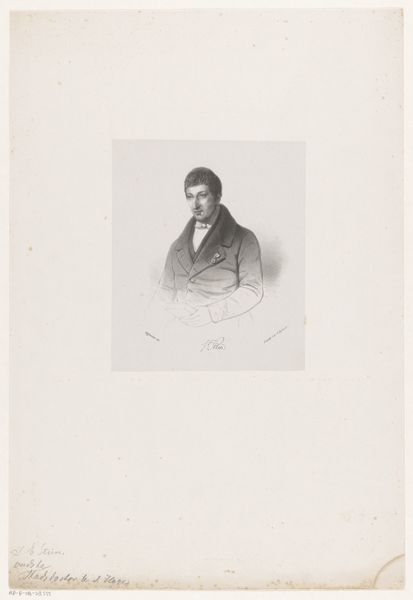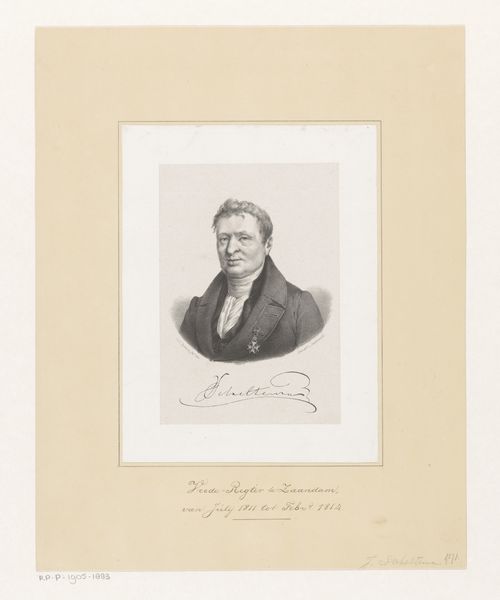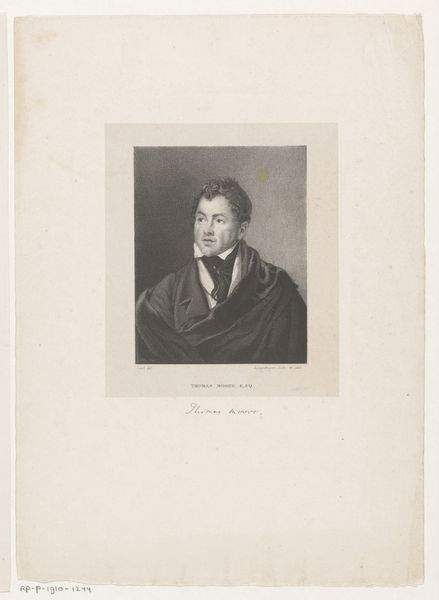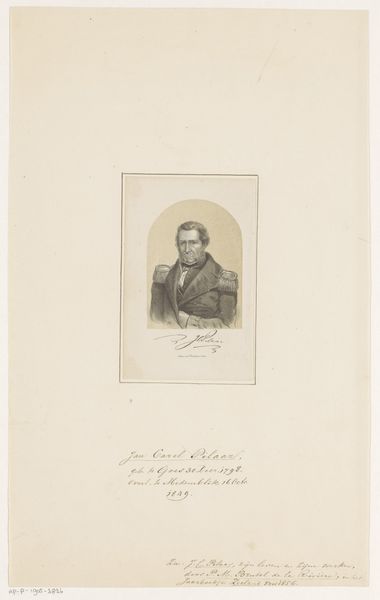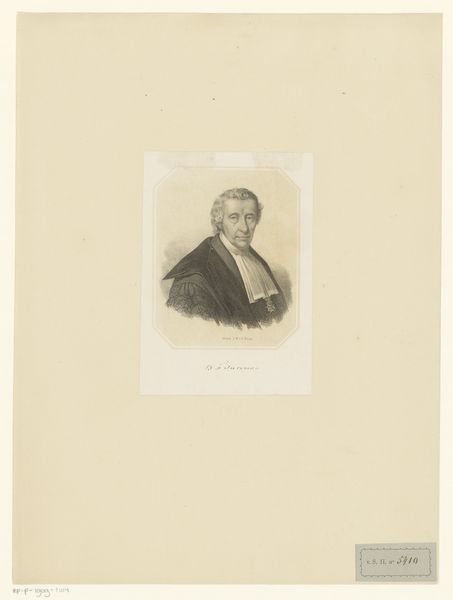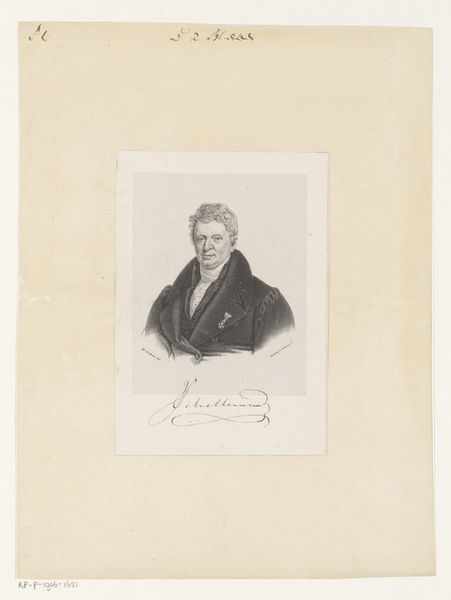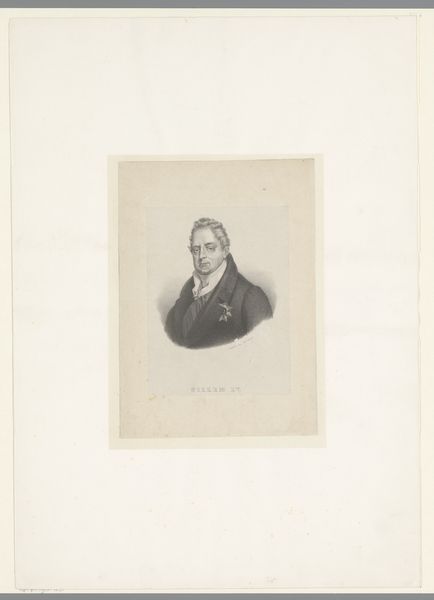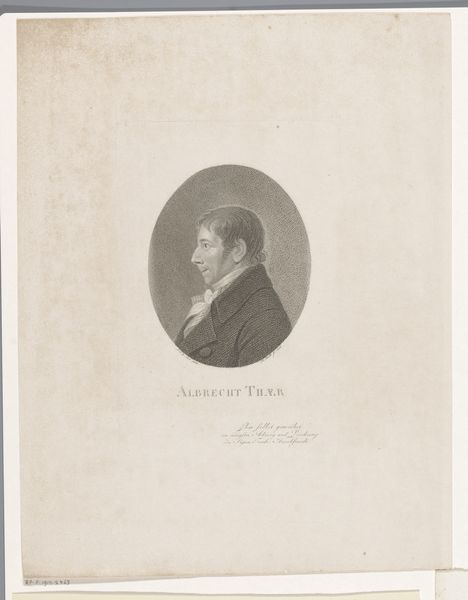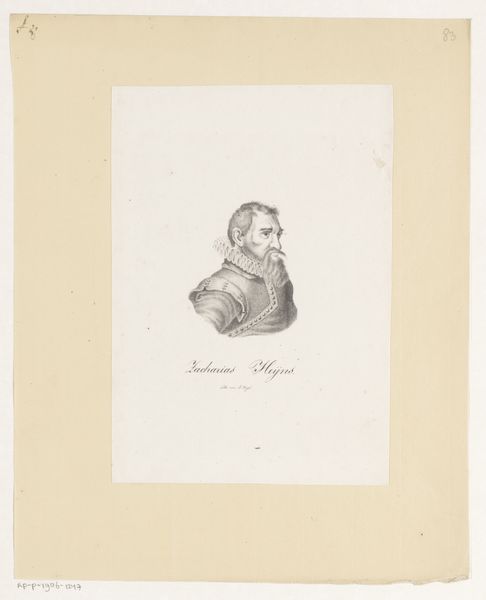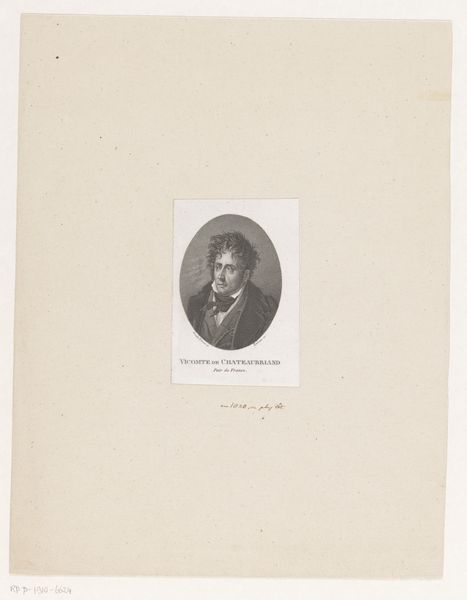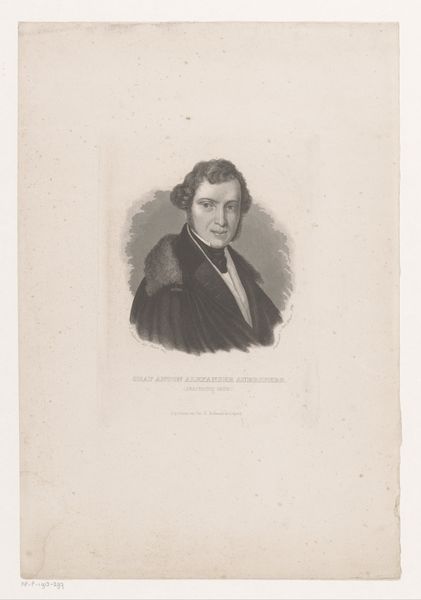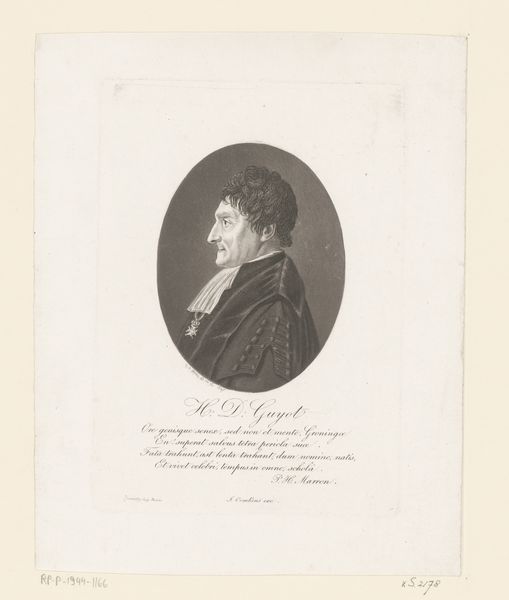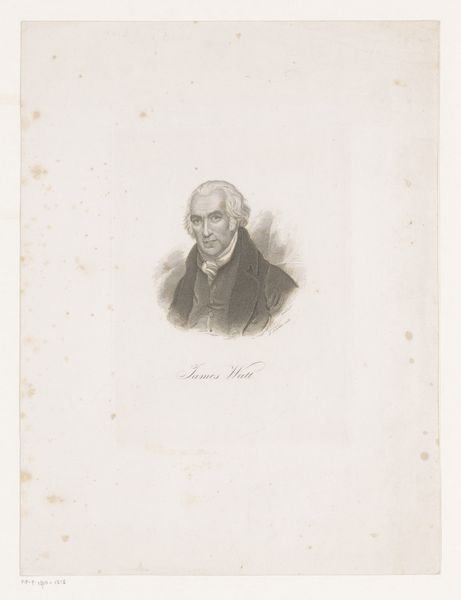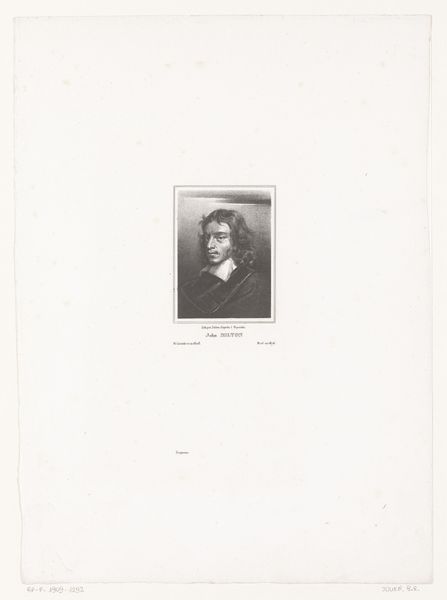
print, paper, engraving
#
portrait
#
neoclacissism
# print
#
paper
#
engraving
#
monochrome
Dimensions: height 219 mm, width 153 mm, height 490 mm, width 348 mm
Copyright: Rijks Museum: Open Domain
Leendert Springer created this portrait of Herman Tollius using etching and drypoint. Tollius, with his formal attire and respectable bearing, likely occupied a prominent position in Dutch society. The Netherlands, during Springer’s time, was a nation deeply shaped by its intellectual traditions and civic institutions. Portraits like this one served to affirm the status of individuals within that social hierarchy. Springer was himself part of an artistic milieu that was increasingly shaped by academies and formal training. His mastery of etching and drypoint speaks to the high level of technical skill valued within these institutions. The portrait, therefore, can be understood as a product of specific social and institutional forces. Understanding art like this requires historical research, delving into the archives of institutions, exploring the biographies of artists and sitters, and uncovering the social networks that shaped their world. Ultimately, it’s through this contextual understanding that the contingent meanings of art become clear.
Comments
No comments
Be the first to comment and join the conversation on the ultimate creative platform.
